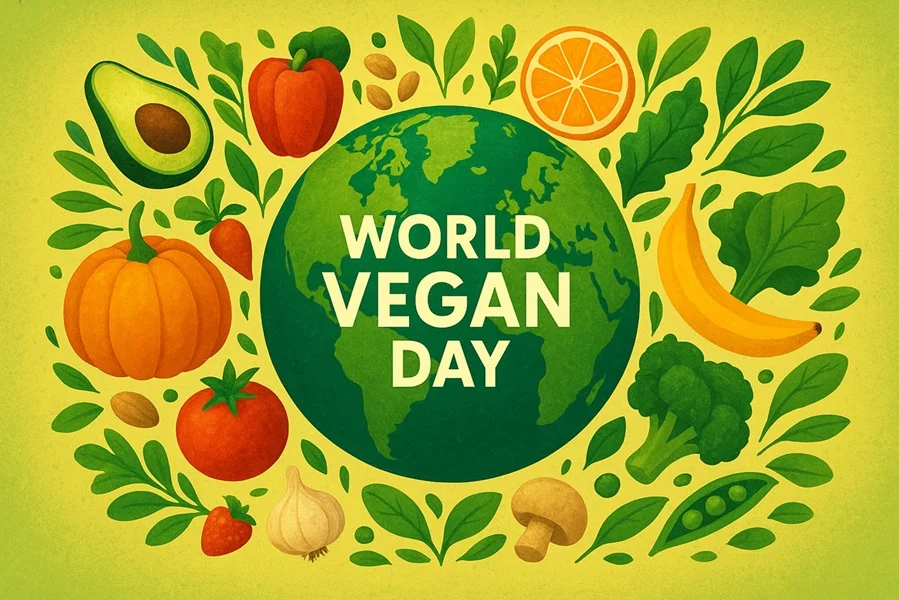Every year on November 1, the world observes World Vegan Day, a day dedicated to raising awareness about the benefits of a vegan lifestyle and promoting compassion towards animals. The day was established in 1994 by Louise Wallis, then chair of The Vegan Society in the UK, to mark the society’s 50th anniversary. It serves as a platform to celebrate the ethical, environmental, and health-related reasons for choosing a diet and lifestyle free from animal products.
Veganism is more than a diet; it is a lifestyle that avoids the use of animal products in food, clothing, cosmetics, and other consumer goods. Vegans abstain from meat, dairy, eggs, honey, and other animal-derived products, often extending their choices to clothing made from leather, fur, or wool. The philosophy is rooted in ethical concerns for animal welfare, environmental sustainability, and personal health.
Health and Environmental Benefits of Veganism
A well-planned vegan diet can offer numerous health benefits. Studies show that vegans often have lower risks of heart disease, high blood pressure, type 2 diabetes, and certain cancers. Plant-based diets are typically rich in fiber, vitamins, and antioxidants, contributing to better digestion, improved weight management, and overall longevity. Vegan diets can also promote healthier cholesterol levels and reduced inflammation in the body.
World Vegan Day also highlights the environmental impact of animal agriculture. Livestock farming is one of the leading contributors to greenhouse gas emissions, deforestation, and water pollution. By choosing plant-based foods, individuals can significantly reduce their carbon footprint, conserve water, and contribute to more sustainable food systems. In this sense, veganism is seen not only as a personal choice but as a global responsibility toward the planet.
Ethical Considerations and Social Awareness
For many, veganism is a moral stance against animal cruelty and exploitation. Factory farming, in particular, raises concerns about animal welfare, as millions of animals are kept in confined spaces and subjected to inhumane conditions. World Vegan Day encourages reflection on these practices and promotes alternatives that align with compassion and respect for all living beings.
While a vegan diet has many benefits, it is not without challenges. Nutritional deficiencies can arise if the diet is not properly balanced, particularly for vitamin B12, iron, calcium, omega-3 fatty acids, and protein. Individuals need to plan meals carefully and may require supplements to ensure adequate intake. Additionally, adopting veganism can sometimes be socially challenging due to limited availability of vegan options in certain regions or cultural contexts.
Conclusion: Informed Choices for a Better Future
World Vegan Day serves as a reminder of the power of conscious choices in shaping health, ethics, and the environment. While veganism may not be suitable for everyone, understanding its benefits and challenges allows individuals to make informed dietary and lifestyle decisions. Whether one adopts a fully vegan lifestyle or incorporates more plant-based meals into their routine, the day inspires a shift toward more compassionate and sustainable living.


